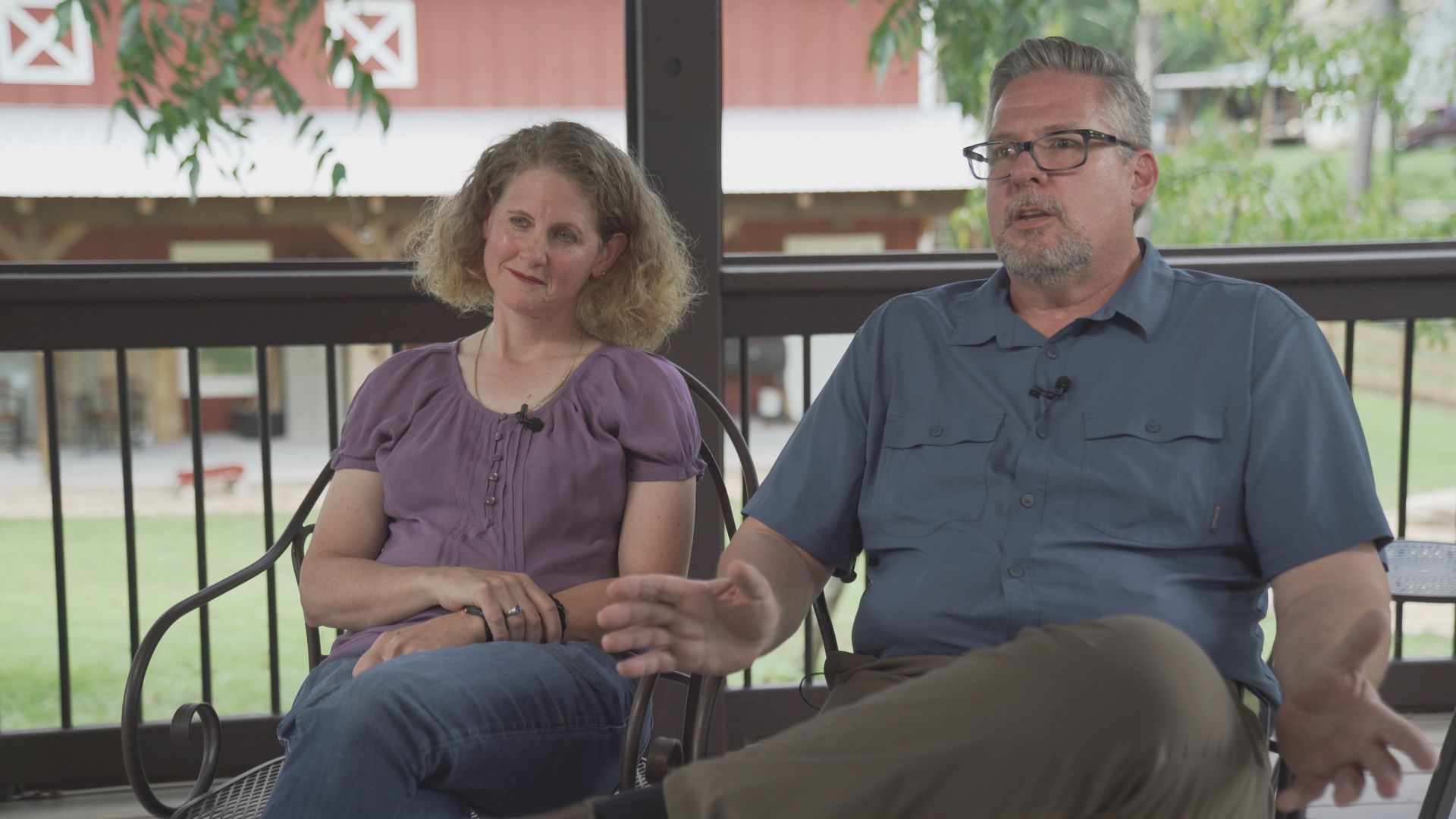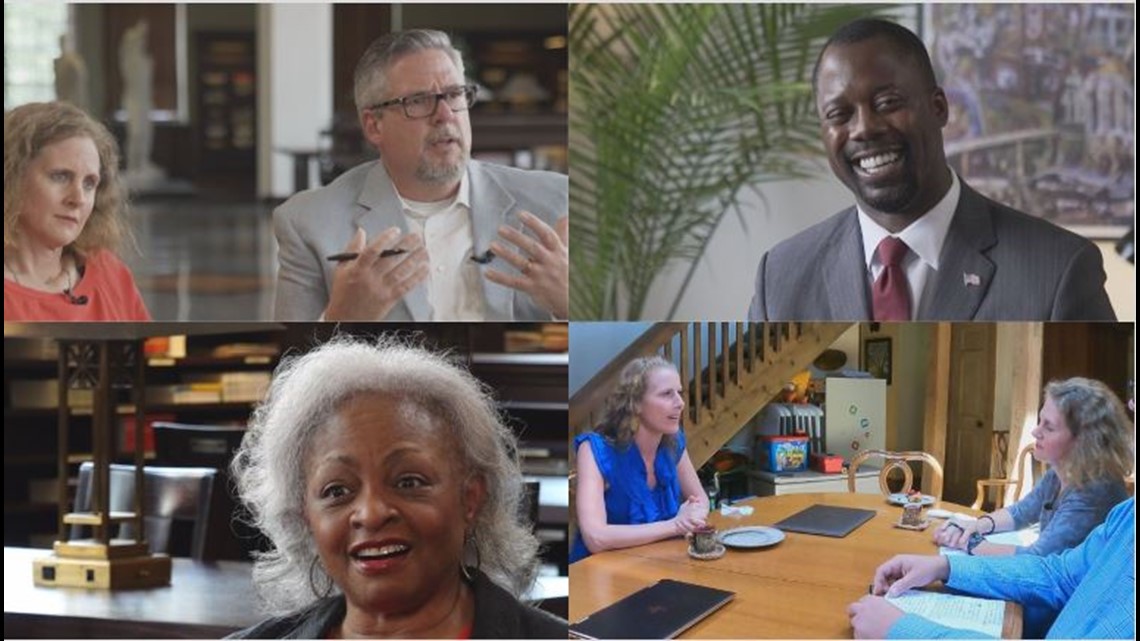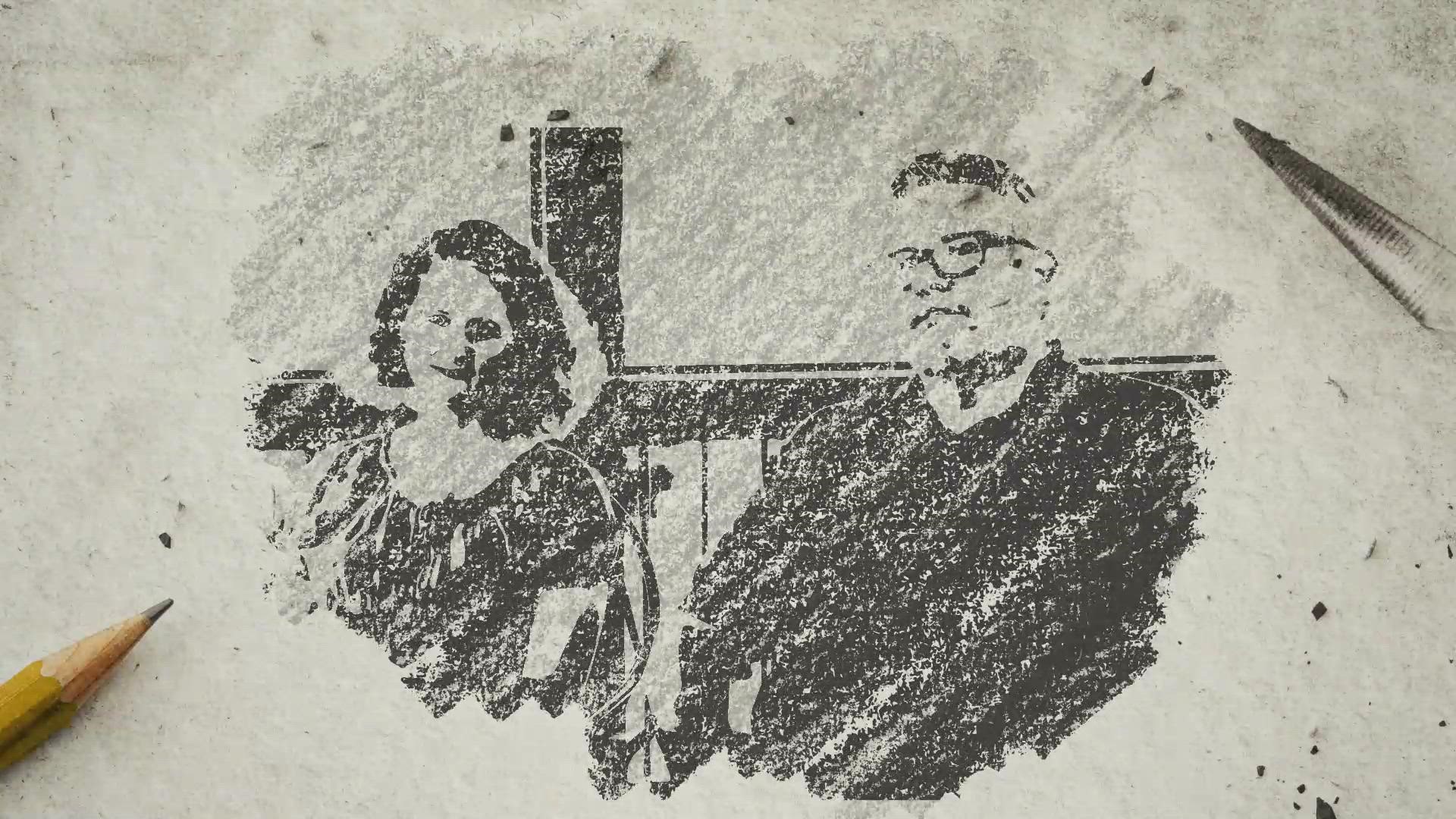These parents questioned critical race theory and DEI programs in public schools. They interviewed experts and here's what they found.
Some Georgia parents had concerns about critical race theory and DEI programs in public schools. They went on a fact-finding journey and interviewed experts.

Editor's note: This story is a part of 11Alive's "Drawing Conclusions" series. Catch the latest episodes on-air Oct. 4-7, and check back for new chapters and updates throughout the week right here at 11alive.com.
In this edition of "Drawing Conclusions," 11Alive follows two metro Atlanta parents concerned about critical race theory (CTR) and diversity, equity and inclusion (DEI) programs in public schools.
They agreed to go on a fact-finding journey and interview experts in African American studies, DEI, implicit bias, and America’s civil rights movement.


Explore all of the episodes in the series here.
Part 1 Meet The Parents and their first expert
Bart and Coley Glasgow live in Canton, Georgia. They are the parents who conducted the interviews. They picked the questions. 11Alive recorded their interviews on-camera and the Glasgows reported what they learned.
11Alive asked the Glasgows to participate after seeing Bart speak at a Cherokee County School Board meeting on May 20, 2021.
Bart and other parents attended the meeting after learning the school district hired an administrator to lead its DEI program. Some parents, including Bart, did not believe a DEI program or administrator was needed. The administrator withdrew from the position after the parents protested her hiring. None of them got a chance to meet her.
They also voiced concern with the possibility of the district teaching critical race theory. 11Alive introduced the Glasgows to Dr. Carol Anderson, a professor and chair of African American Studies at Emory University.
In the interview the Glasgows conducted, Dr. Anderson explained what is and what is not taught in public schools and how the law has helped define race in the United States.
“There is this fear that talking about, teaching slavery, teaching the removal of Indigenous people, that what that will do is that, it will make our students feel ashamed, it will make our students feel embarrassed," said Dr. Anderson. "No. Because, when we’re teaching that, we’re also talking about the strengths of the American people to fight for democracy.”
Watch the full interview with Dr. Anderson here.
Part 2 Interview with DEI school administrator and implicit bias expert
The Glasgows had a lot of anxiety about their school district hiring an administrator to run its diversity, equity and inclusion program. In this segment, Bart and Coley interviewed someone in the same role at another school district. Dr. Tommy Welch is the Chief Equity and Compliance Officer at Gwinnett County Schools. He’s a former teacher and Georgia Principal of the Year.
“Your lens is for your child, but they go to school with a lot of other children. So, how can we ensure that everyone gets what they need, the shoe that they need that fits their foot,” said Dr. Welch.
Bart and Coley also sit down with an expert in implicit bias. Dr. Allison Skinner-Dorkenoo is a psychology professor at the University of Georgia. She specializes in how biases are established, maintained, and shared over our lifetime. The professor gives the Glasgows case study examples of how teaching students about bias and race can be beneficial. “Just being aware isn’t going to do it, you also have to be kind of like concerned,” said Dr. Skinner-Dorkenoo.
Check out the full interview with Dr. Skinner-Dorkenoo here.
Check out the full interview with Dr. Welch here.
Part 3 The Glasgows Visit the Center for Civil and Human Rights Museum
It’s time to take a field trip. The Glasgows get a personal tour of the Center for Civil and Human Rights from the museum’s Director of Education, Nicole Moore. In their final interview, Director Moore explains how she helps Georgia educators teach the civil rights movement through archival news stories, pictures and recorded speeches - often not included in American history books.
They also participate in a simulated lunch counter sit-in that happened in 1960, where they hear white workers yelling, hitting and spitting at civil rights activists. A moment that nearly brings them to tears.
“Let's be honest, history is ugly. It doesn’t feel good all the time. We need to be okay with that. But, we also need to learn from that,“ said Moore. “I think the best educators want to be able to make sure that their students can connect, that they can see themselves, that they can feel empowered.”
Bart and Coley share things learned things from the tour they didn’t know before visiting the museum.
Check out the full visit to the Center for Civil and Human Rights here.
Part 4 The parents draw their final conclusion on Critical Race Theory
Nearly a month after meeting Bart and Coley Glasgow, their journey to learn more about critical race theory and diversity, equity and inclusion in Georgia schools comes to a conclusion.
For Coley, her opinions completely changed.
“I realized that after we sat here the first time, that I had assumptions about CRT that I had heard from others that I had heard from social media and they were not correct. They were not the big picture. It was an extreme version. And then meeting with the experts, and asking them questions and hearing from their heart, it was not what I had assumed it would be,” said Coley.
Bart said his heart didn’t change, but it was now filled with information he didn’t have before. “I had filled in myself with assumptions what I had heard, what I had heard other people say,” said Bar.
Coley previously said she didn’t agree with her school district hiring a DEI administrator. After her interview, she now believes there’s a need “I do see a need. As we become more and more diverse, we need someone who can help facilitate with teachers and students to open that door of communication and break down those barriers,” said Coley.
Bart says he hopes this episode shows it is possible to talk about difficult subjects without jumping to conclusions. “And that’s what I hope this show shows, how easily we can connect with people when we’re interested in having a productive dialog and reasoned debate.”
Explore more Drawing Conclusions
A vaccine-hesitant mom interviewed four experts and gets answers to all of her questions about the safety of the COVID-19 vaccines and other concerns.
Follow Joy's journey for answers here:


